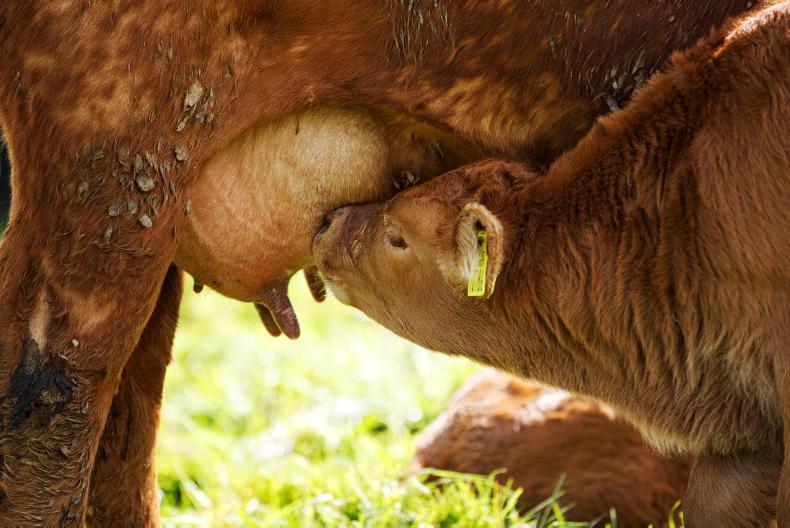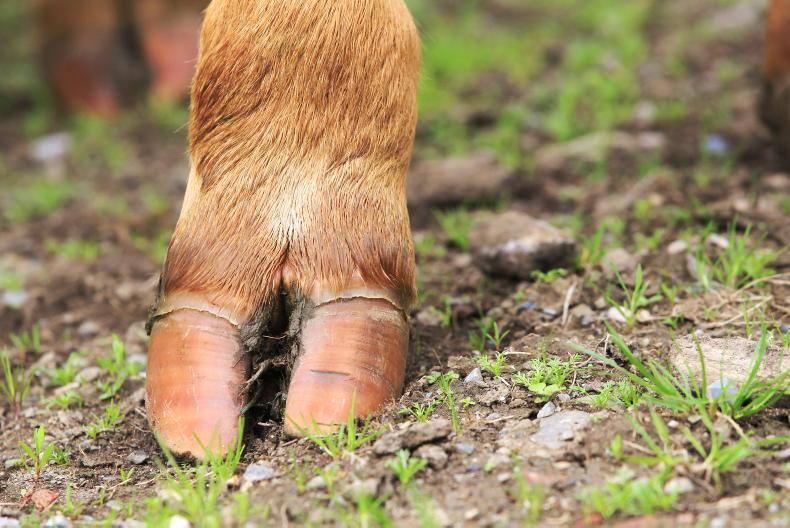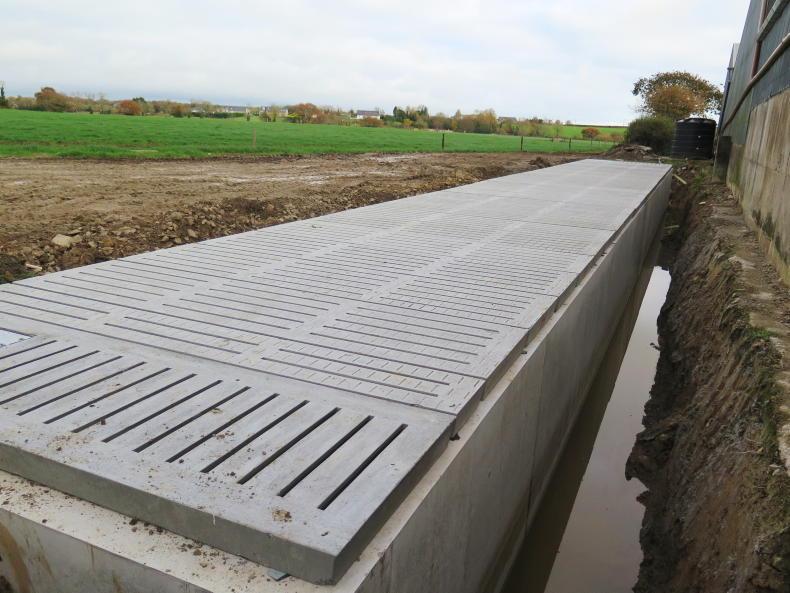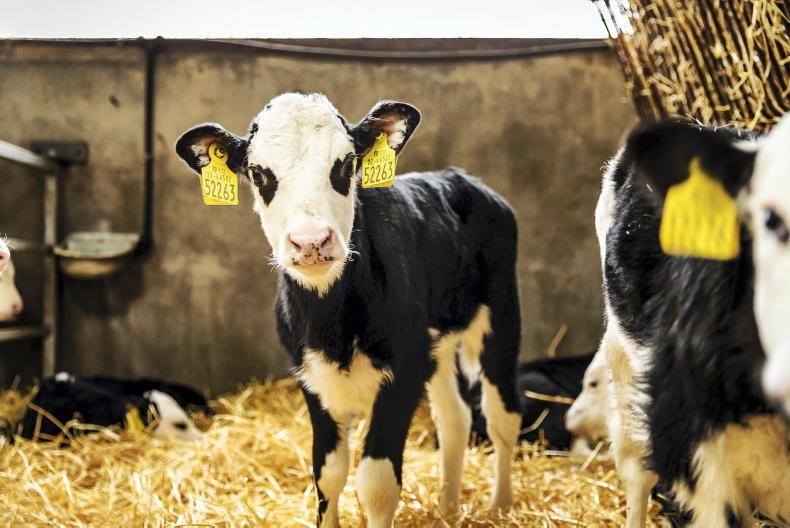Among a raft of policy announcements made in the runup to the dissolution of the Stormont Assembly on Monday 28 March, DAERA published 54 decisions relating to the future of farm support in NI.
The initial proposals had been the subject of a public consultation which closed on 15 February 2022.
In a media briefing last Thursday, senior DAERA officials said the Department had taken on board the feedback received, and that was reflected in the final decisions made by Minister for Agriculture Edwin Poots.
They also confirmed that outside of some small-scale pilot programmes potentially in 2023, the “main bulk” of changes to support arrangements are likely in 2024.
DAERA originally proposed that the minimum claim size for this sustainability payment be set at 10ha, significantly higher that the 3ha minimum in the Basic Payment Scheme
With 17% of money (approx. £50m) taken off in the first year to fund a beef sustainability package, it still means that the vast majority of funding will initially go towards a new area-based farm sustainability payment (previously known as a resilience measure).
But over time, as uptake of new measures such as Farming with Nature increase, the budget for this sustainability payment “will reduce to a much lower level”.
DAERA originally proposed that the minimum claim size for this sustainability payment be set at 10ha, significantly higher that the 3ha minimum in the Basic Payment Scheme (BPS). However, that was opposed by 92% of respondents to the DAERA consultation. It has now been set at 5ha.
Of the approximately 24,000 farms that currently claim BPS, a 10ha minimum claim would have potentially excluded 4,880 farms. Setting the minimum at 5ha reduces this to 1,463.
In addition, some claimants who only grow grass for sale, or just keep land eligible for payments, are likely to miss out due to new active farmer requirements.
This requirement has now been tweaked, and a farm business will need to have in either 2020 or 2021, cattle and sheep on APHIS, or 3ha of an arable or horticulture crop
In its consultation, DAERA had proposed limiting payments to farms with cattle or sheep registered on APHIS, or at least 3ha of an arable or horticulture crop. Based on analysis of 2020 claims, this would potentially exclude 1,384 farm businesses.
This requirement has now been tweaked, and a farm business will need to have in either 2020 or 2021, cattle and sheep on APHIS, or 3ha of an arable or horticulture crop. There is an allowance for a pig or poultry farmer who grows grass for sale.
Payment cap
For those with large area-based payments there is a progressive cap, starting at £60,000. From £60,000 to £80,000 a 20% reduction applies, which doubles to 40% between £80,000 and £100,000.
From £100,000 to £150,000, a 60% deduction will apply, which increases to 80% up to the maximum of £190,000.
However, with 17% coming off the overall budget in the first year, the impact of this cap is not as great as it might have been.
DAERA analysis shows that 265 farm businesses are likely to have payments over £60,000, with the total amount potentially deducted due to capping estimated at £2.24m.
Entitlements
The farm sustainability payment will utilise the same system of entitlements as currently exists for BPS, so if a farmer has 50 entitlements now, they will still have 50 in 2024.
While the value of each entitlement will change as a result of the 17% reduction to fund beef measures, there are no plans to take all entitlements to a flat rate.
In the five years following the 2015 CAP reforms, all entitlements moved five steps or seven to a flat-rate payment.
With money gradually moving into other schemes from 2024 on, DAERA officials argue implementing a flat payment would make little material difference to individuals. It will still be possible for farmers to lease or sell entitlements.
In addition, new land eligibility rules from 2024 will mean farmers are able to claim entitlements on all land, excluding hard features (lanes, buildings etc) – an extra 40,000ha will be available across NI (a 4% increase in eligible land).
Conditions
To get the farm sustainability payment farmers will be required to comply with new farm sustainability standards (replacing cross compliance), participate in the £45m soil nutrient health scheme and, in the future, develop a nutrient management plan.
Dairy and beef breeding herds will also need to record sires on APHIS to assist with implementation of a new ruminant genetics programme.
Rules
revised
for suckler cow
support
In its policy decisions document, DAERA confirmed its intention to proceed with a beef sustainability package, funded by taking up to 17% off the total farm support budget (around £50m).
It contains two measures designed to improve productivity and reduce the carbon footprint of NI beef production.
The first is the proposed suckler cow measure, which initially had two conditions attached.
The first was that a heifer would need to calve at under 30 months in the first year of the new scheme, reducing to under 27 months by year four.
Analysis of 2020 APHIS records shows that 48% of first-calvers would meet the 30-month requirement, with just 33% calving at under 27 months.
A number of respondents to the DAERA consultation raised concerns that the targets were too ambitious. As a result, DAERA has revised the year one target to 34 months, which reduces to 29 months by year four. The proposed targets will be subject to regular review.
Mature cows
For mature suckler cows, the eligibility for payment will be dependent on calving interval (CI). Initially DAERA proposed a 400-day limit in year one, moving to 370 days by year four.
Analysis of the most recent CI for all suckler dams on APHIS shows 36% of cows did not calve within 400 days of their last calving, with 56% not meeting the 370-day target. Second-calvers had a significantly longer CI than older cows. Based on their analysis, and consultation feedback, DAERA has decided to relax the CI target for year one of a scheme to 415 days, moving to 385 days by year four.
Other conditions
Full payment will only be made to animals that produce a live calf registered on APHIS, while to remain compliant with World Trade Organisation (WTO) rules, it will be necessary to limit payments to a certain number of animals. The preference is for a quota based on an historic reference year (pre 2022), but further work is to be undertaken on an appropriate system.
Only farmers that receive the sustainability payment will be eligible for the suckler scheme.
Payment to lower carbon footprint of beef
The second element of a beef sustainability package is a beef carbon reduction measure (previously called a beef transformation measure), which aims to reduce the age at slaughter of prime beef cattle.
DAERA initially proposed setting a limit of 30 months at slaughter, falling to a maximum of 24 months by year four. Analysis shows that 82% of steers, young bulls and heifers slaughtered in 2020 were under 30 months, with 42% under 24 months.
There was also little difference across breeds.
Despite concerns raised by some organisations that the scheme will lead to greater intensification during finishing, DAERA officials are clear that earlier slaughtering will drive down the carbon footprint of beef production.
However, to make the year four target more achievable, it has been changed from 24 to 26 months.
To keep within WTO rules, payments will be made on a maximum of 352,000 head (based on average prime slaughterings over the last three years).
No targeted sheep support
Despite a number of farming organisations calling for a headage payment for breeding ewes, none of the £50m budget pot being used to encourage change in the beef sector will cross over to be targeted at sheep.
The DAERA policy document refers to “extensive work” being done, but no clear need being defined around incentivising improved productivity in breeding ewes. However, further analysis is to be undertaken to explore how sheep farmers might be encouraged to provide data to support a future ruminant genetics programme.
Farming with Nature package
Longer term the central plank of DAERA policy will be a Farming with Nature package of measures that will support farmers to make a range of environmental improvements.
The DAERA policy document refers to a new scheme “co-designed with stakeholders”, with an “orderly transition” from the current Environmental Farming Scheme.
All land managers with at least 3ha will be eligible to apply.
Initially the Department had proposed that there should not be a cap on the level of payment available under the scheme. That prompted concerns from some farm lobby groups that it could lead to a large chunk of future farm support ending up in the hands of a few large landowners. The Department has now agreed that “in principle” a cap should be in place.
DAERA to develop a land use policy
With specific NI climate change legislation agreed, DAERA officials acknowledge there is a significant amount of work to be done on how agriculture will be able to meet future climate targets.
The DAERA policy document outlines a number of carbon reduction measures including using feed additives to reduce methane from ruminants, wide uptake of treated urea fertiliser, peatland re-wetting, growing taller and wider hedges etc.
Slaughtering beef cattle at younger ages, and discouraging farmers from keeping unproductive suckler cows will also lower the carbon footprint, while potentially freeing up some land for other uses.
Many of these issues are to be further explored as part of a land use strategy to be developed by DAERA in the next Stormont mandate.
Read more
DAERA gives assurances on free soil tests
NI farmers opting to buy BPS entitlements
Among a raft of policy announcements made in the runup to the dissolution of the Stormont Assembly on Monday 28 March, DAERA published 54 decisions relating to the future of farm support in NI.
The initial proposals had been the subject of a public consultation which closed on 15 February 2022.
In a media briefing last Thursday, senior DAERA officials said the Department had taken on board the feedback received, and that was reflected in the final decisions made by Minister for Agriculture Edwin Poots.
They also confirmed that outside of some small-scale pilot programmes potentially in 2023, the “main bulk” of changes to support arrangements are likely in 2024.
DAERA originally proposed that the minimum claim size for this sustainability payment be set at 10ha, significantly higher that the 3ha minimum in the Basic Payment Scheme
With 17% of money (approx. £50m) taken off in the first year to fund a beef sustainability package, it still means that the vast majority of funding will initially go towards a new area-based farm sustainability payment (previously known as a resilience measure).
But over time, as uptake of new measures such as Farming with Nature increase, the budget for this sustainability payment “will reduce to a much lower level”.
DAERA originally proposed that the minimum claim size for this sustainability payment be set at 10ha, significantly higher that the 3ha minimum in the Basic Payment Scheme (BPS). However, that was opposed by 92% of respondents to the DAERA consultation. It has now been set at 5ha.
Of the approximately 24,000 farms that currently claim BPS, a 10ha minimum claim would have potentially excluded 4,880 farms. Setting the minimum at 5ha reduces this to 1,463.
In addition, some claimants who only grow grass for sale, or just keep land eligible for payments, are likely to miss out due to new active farmer requirements.
This requirement has now been tweaked, and a farm business will need to have in either 2020 or 2021, cattle and sheep on APHIS, or 3ha of an arable or horticulture crop
In its consultation, DAERA had proposed limiting payments to farms with cattle or sheep registered on APHIS, or at least 3ha of an arable or horticulture crop. Based on analysis of 2020 claims, this would potentially exclude 1,384 farm businesses.
This requirement has now been tweaked, and a farm business will need to have in either 2020 or 2021, cattle and sheep on APHIS, or 3ha of an arable or horticulture crop. There is an allowance for a pig or poultry farmer who grows grass for sale.
Payment cap
For those with large area-based payments there is a progressive cap, starting at £60,000. From £60,000 to £80,000 a 20% reduction applies, which doubles to 40% between £80,000 and £100,000.
From £100,000 to £150,000, a 60% deduction will apply, which increases to 80% up to the maximum of £190,000.
However, with 17% coming off the overall budget in the first year, the impact of this cap is not as great as it might have been.
DAERA analysis shows that 265 farm businesses are likely to have payments over £60,000, with the total amount potentially deducted due to capping estimated at £2.24m.
Entitlements
The farm sustainability payment will utilise the same system of entitlements as currently exists for BPS, so if a farmer has 50 entitlements now, they will still have 50 in 2024.
While the value of each entitlement will change as a result of the 17% reduction to fund beef measures, there are no plans to take all entitlements to a flat rate.
In the five years following the 2015 CAP reforms, all entitlements moved five steps or seven to a flat-rate payment.
With money gradually moving into other schemes from 2024 on, DAERA officials argue implementing a flat payment would make little material difference to individuals. It will still be possible for farmers to lease or sell entitlements.
In addition, new land eligibility rules from 2024 will mean farmers are able to claim entitlements on all land, excluding hard features (lanes, buildings etc) – an extra 40,000ha will be available across NI (a 4% increase in eligible land).
Conditions
To get the farm sustainability payment farmers will be required to comply with new farm sustainability standards (replacing cross compliance), participate in the £45m soil nutrient health scheme and, in the future, develop a nutrient management plan.
Dairy and beef breeding herds will also need to record sires on APHIS to assist with implementation of a new ruminant genetics programme.
Rules
revised
for suckler cow
support
In its policy decisions document, DAERA confirmed its intention to proceed with a beef sustainability package, funded by taking up to 17% off the total farm support budget (around £50m).
It contains two measures designed to improve productivity and reduce the carbon footprint of NI beef production.
The first is the proposed suckler cow measure, which initially had two conditions attached.
The first was that a heifer would need to calve at under 30 months in the first year of the new scheme, reducing to under 27 months by year four.
Analysis of 2020 APHIS records shows that 48% of first-calvers would meet the 30-month requirement, with just 33% calving at under 27 months.
A number of respondents to the DAERA consultation raised concerns that the targets were too ambitious. As a result, DAERA has revised the year one target to 34 months, which reduces to 29 months by year four. The proposed targets will be subject to regular review.
Mature cows
For mature suckler cows, the eligibility for payment will be dependent on calving interval (CI). Initially DAERA proposed a 400-day limit in year one, moving to 370 days by year four.
Analysis of the most recent CI for all suckler dams on APHIS shows 36% of cows did not calve within 400 days of their last calving, with 56% not meeting the 370-day target. Second-calvers had a significantly longer CI than older cows. Based on their analysis, and consultation feedback, DAERA has decided to relax the CI target for year one of a scheme to 415 days, moving to 385 days by year four.
Other conditions
Full payment will only be made to animals that produce a live calf registered on APHIS, while to remain compliant with World Trade Organisation (WTO) rules, it will be necessary to limit payments to a certain number of animals. The preference is for a quota based on an historic reference year (pre 2022), but further work is to be undertaken on an appropriate system.
Only farmers that receive the sustainability payment will be eligible for the suckler scheme.
Payment to lower carbon footprint of beef
The second element of a beef sustainability package is a beef carbon reduction measure (previously called a beef transformation measure), which aims to reduce the age at slaughter of prime beef cattle.
DAERA initially proposed setting a limit of 30 months at slaughter, falling to a maximum of 24 months by year four. Analysis shows that 82% of steers, young bulls and heifers slaughtered in 2020 were under 30 months, with 42% under 24 months.
There was also little difference across breeds.
Despite concerns raised by some organisations that the scheme will lead to greater intensification during finishing, DAERA officials are clear that earlier slaughtering will drive down the carbon footprint of beef production.
However, to make the year four target more achievable, it has been changed from 24 to 26 months.
To keep within WTO rules, payments will be made on a maximum of 352,000 head (based on average prime slaughterings over the last three years).
No targeted sheep support
Despite a number of farming organisations calling for a headage payment for breeding ewes, none of the £50m budget pot being used to encourage change in the beef sector will cross over to be targeted at sheep.
The DAERA policy document refers to “extensive work” being done, but no clear need being defined around incentivising improved productivity in breeding ewes. However, further analysis is to be undertaken to explore how sheep farmers might be encouraged to provide data to support a future ruminant genetics programme.
Farming with Nature package
Longer term the central plank of DAERA policy will be a Farming with Nature package of measures that will support farmers to make a range of environmental improvements.
The DAERA policy document refers to a new scheme “co-designed with stakeholders”, with an “orderly transition” from the current Environmental Farming Scheme.
All land managers with at least 3ha will be eligible to apply.
Initially the Department had proposed that there should not be a cap on the level of payment available under the scheme. That prompted concerns from some farm lobby groups that it could lead to a large chunk of future farm support ending up in the hands of a few large landowners. The Department has now agreed that “in principle” a cap should be in place.
DAERA to develop a land use policy
With specific NI climate change legislation agreed, DAERA officials acknowledge there is a significant amount of work to be done on how agriculture will be able to meet future climate targets.
The DAERA policy document outlines a number of carbon reduction measures including using feed additives to reduce methane from ruminants, wide uptake of treated urea fertiliser, peatland re-wetting, growing taller and wider hedges etc.
Slaughtering beef cattle at younger ages, and discouraging farmers from keeping unproductive suckler cows will also lower the carbon footprint, while potentially freeing up some land for other uses.
Many of these issues are to be further explored as part of a land use strategy to be developed by DAERA in the next Stormont mandate.
Read more
DAERA gives assurances on free soil tests
NI farmers opting to buy BPS entitlements









SHARING OPTIONS